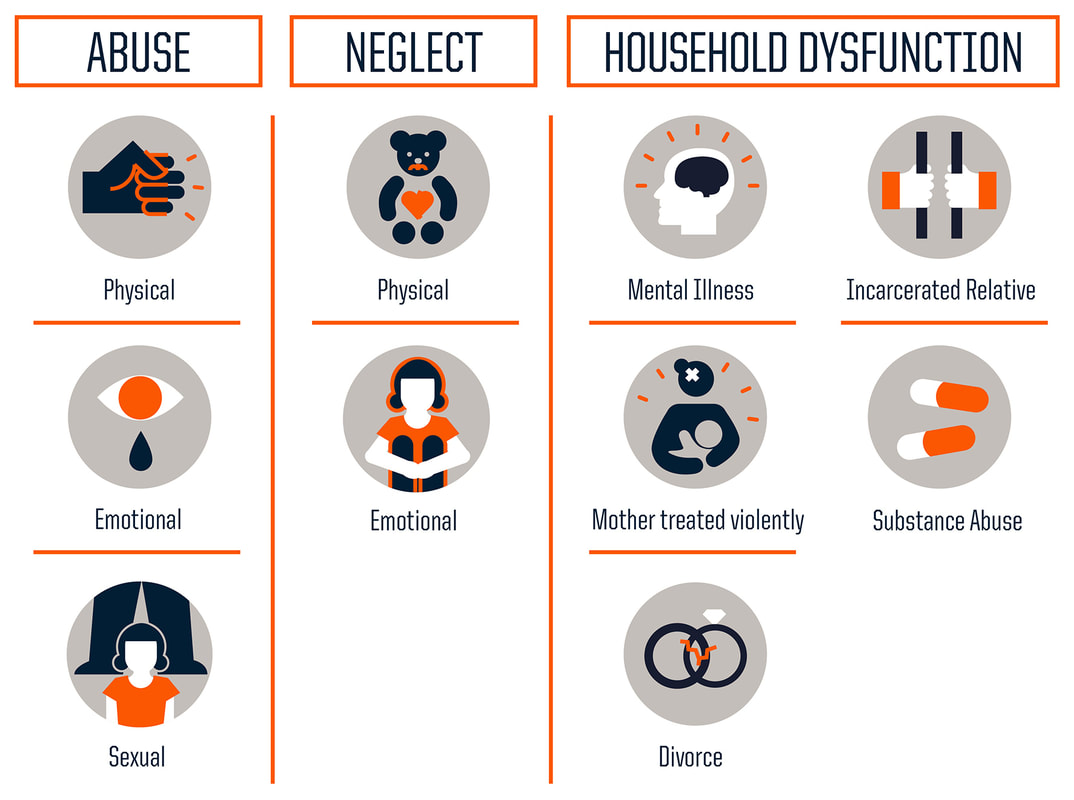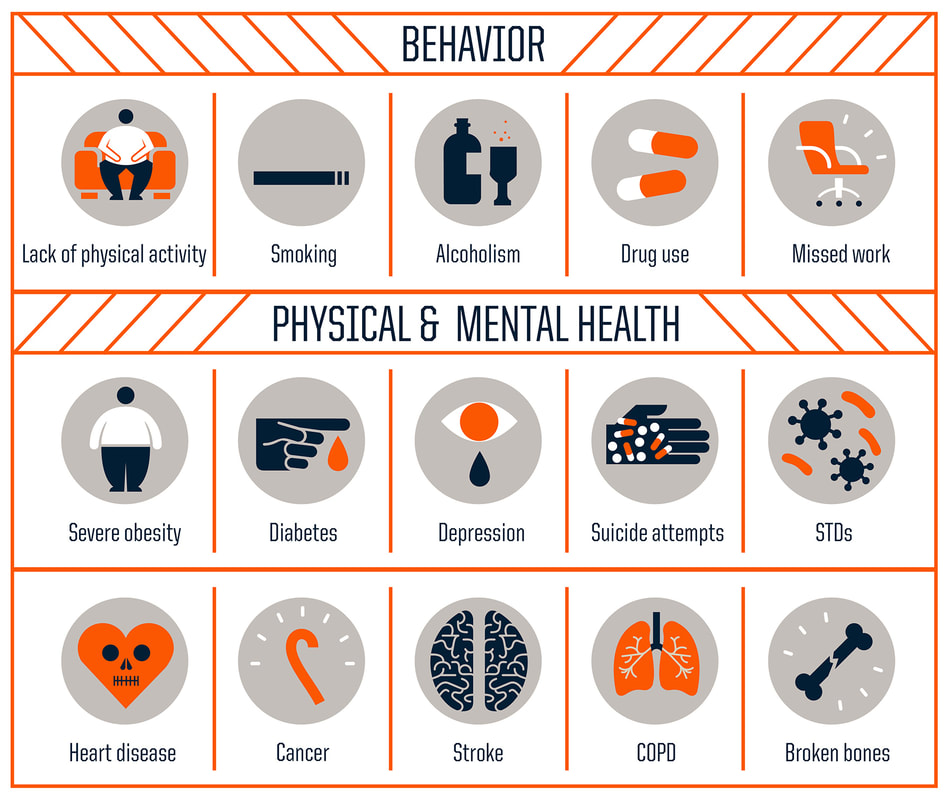|
Trigger warning. I want to offer a short primer on trauma by way of the Adverse Childhood Experiences Study (ACEs). Using it carelessly can cause unnecessary emotional pain. The ACE study is only one part of the story of trauma. For the full story, we need to look at research around resilience and the role of adversity in becoming whole as individuals and communities. Emmy Werner’s Longitudinal study, the recent book, “The Good Life” summarizing findings of the 84-year Harvard Study of Adult Development, many other research studies, and many of our stories say that trauma does not need to have the last word and it is not more powerful than our ability to heal and take individual and shared ownership of the adversity in our lives. In the mid-80s Dr. Vincent Felitti encountered a patient named Patti at his medical weight loss clinic. In 51 weeks, she lost over 300 lbs. Then in three weeks, she regained 37 lbs. After investigating, they discovered she was sleep-eating as a response to a sexual advance from a co-worker. Patti was a survivor of child sexual abuse and unconsciously used her weight as a way of protecting herself against predators. Her “problem” was a solution. Felitti expressed shock that he had not heard of such a thing in his medical training. He surveyed the rest of his clients and found that 80% connected their weight to childhood adversity.
Felitti then presented at a Center for Disease Control and Prevention conference where his findings were not well received. That evening at the speaker's dinner, he sat next to a CDCP muckety muck who suggested they redo the research with a bigger sample group. They ended up collaborating with a Kaiser clinic and collecting 17,421 surveys. It is now known as the Adverse Childhood Experiences Study (ACEs). There were ten primary questions on the survey about abuse, neglect, and family dysfunction - all related to broken belonging in the first 18 years of life. The results of the study show that, due to the effect of our relational experiences on brain development, nearly everyone has trauma in their stories. Some more than others. This trauma, contained in relational experiences, literally builds the neural pathways that contain our beliefs about ourselves, the security of our relational attachments, our safety in the world, our innate value, and how to connect. Our relationships build our brains. How we experience belonging is built. We do not decide it ourselves - especially when we are children. The research also connected relational trauma to a myriad of negative outcomes (in addition to obesity) such as depression, addiction, disease, employment insecurity, academic failure, and relational dysfunction. What it does not demonstrate is the number of people with adversity who, in the context of a healing community, turned their trauma into strength. We can’t avoid trauma - it happens to everyone. That’s why healing relationships are so vital. It is where and how we heal. And it is where the strength that adversity can produce finds its most powerful expression. It is also why blame, shame, and separation are further trauma rather than a solution. Invitation to belong is our access to generative healing and human progress.
0 Comments
Your comment will be posted after it is approved.
Leave a Reply. |
Curtis MillerI write in a geeky, sciency, hopefully poetic way about belonging, storytelling, community building, deconstruction and construction, Archives
June 2024
Categories
All
|
Proudly powered by Weebly



 RSS Feed
RSS Feed